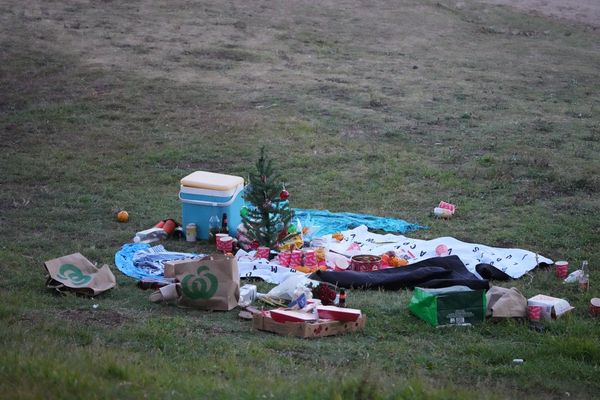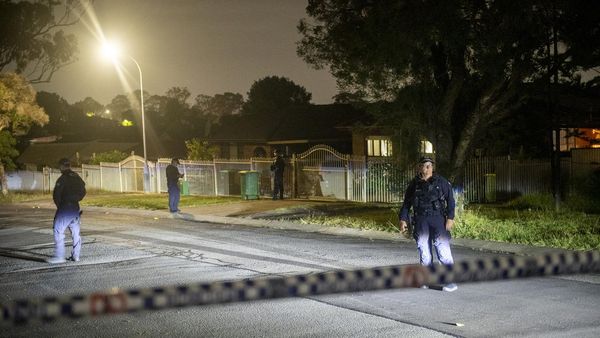
Until I moved away – for good, though I didn’t know it at the time – I never expected to leave Ireland. I’d always been a homebody, happiest near friends, family and Dublin – a city I knew so well it felt like a part of me. At 34, I had lived there my whole life – and with the exception of the years I’d attended college in Galway, and a few months spent honing my Italian in Milan, I’d never lived more than 30 miles from my childhood home.
That was absolutely fine by me. When my sister, who moved away right after graduation, encouraged me to come for extended visits I’d think of all the things keeping me in Ireland: our parents, my friends, my future as a broadsheet journalist, the latest man in whose basket I had placed all of my eggs.
In 2019, though, the bottom fell out of those dreams. The newspaper I had been so proud to write for stopped commissioning me; house prices soared to frankly ridiculous levels, putting home ownership out of my grasp; and my five-year relationship fell apart, taking with it my hopes for a future and a family with this person. For the first time in my adult life, there was nothing keeping me in Ireland, aside from a belief I’d held on to for so long: that I belonged there, and could never be happy anywhere else.
In the months after the breakup, I decided to leave writing behind, at least the feature writing and creative nonfiction to which I’d dedicated the better part of a decade, and took a job as content editor for a chain of jewellery shops. I hated it. I was forced to move home to live with my parents, after struggling to pay the €650 rent – a bargain, by Dublin standards – for my half of a house I’d lived in for seven years with my partner.
I’d joined dating apps and gone out with a handful of men, each one of them telling me they were “just looking for something casual” and, my favourite: “I don’t believe in monogamy.” I knew that, if I was to meet someone with whom I could potentially, eventually, maybe build a life and have children, I would need to tread softly; trick him into thinking that I, too, was looking for something casual; hope against hope that he would change his mind; take my time, something I did not feel that I had in abundance.
I could see the next 10 years stretching out in front of me: writing sales copy to entice people to buy things I didn’t think they should buy; going on “fun” dates with a succession of single men who would run at the first sign of commitment; doing sudoku in the living room with my parents, the thrill of beating my dad at the New York Times’s “hard” level shrinking with each passing day.
Was this the life I had dreamed of for myself? Not quite.
So when my sister suggested – again – that I join her and her family in her home in Fort Wayne, Indiana, for a year, or two, the idea seemed marginally less outré than it previously had. I highly doubt I would have left, if I’d known I wouldn’t return for more than two years. However, due to Covid travel bans, my flight would be one of the last to arrive in the US and the decision was taken from me. As it happens, that lack of foresight was fortuitous.
It’s fair to say that things are different in the US, and there is a lot about it that I don’t like. But it has given me what Ireland hasn’t; within six months of my first visit, I met a man on Tinder who would later become my husband. Eighteen months later, I was pregnant with our son, Atlas. Three months after that, we bought a four-bedroom house in the suburbs with a two-car garage and large garden, for the princely sum of $250,000 (£191,000) – while friends at home paid $750,000 for a three-bedroom terraced cottage with a small backyard, large enough to store a bicycle, or to hang a short washing line. I envy them that house, that life, although I realise that, even if I had stayed in Ireland, it’s not a life I could have afforded for myself.
It wasn’t that I was different in the US, necessarily. But there was a sense that anything could happen, my future spread out in front of me, entirely unknown. This is something I had never felt in Ireland, where I had a routine and a social circle and very little about my life was spontaneous or unpredictable. In the US, I had less of a fixed idea about what my life should – or would – become.
The decision to open doors that I thought were firmly shut has led to my life looking a lot like I had always wanted. The US even feels like home sometimes, when I’m sitting on the couch with my baby, or laughing by the pool with my sister. At other times, when my husband’s booming voice echoes across the counter at our local cafe (something that leaves him entirely unbothered, while I wait for the ground to swallow me up) it doesn’t. But I’m learning to make my peace with that.
Rosemary Mac Cabe is the author of This Is Not About You (Unbound, £12.99). To support The Guardian and Observer, order your copy at guardianbookshop.com. Delivery charges may apply.







